Sometimes, the hardest thing to do is talk about a problem—especially when it relates to a taboo topic like bedwetting. Once you do, however, you’ll quickly learn you aren’t the only one with these challenges, and there’s plenty we can learn from each other.
Bedwetting is a great example of this: so many parents and children are managing their night-time accidents on their own, just like you.
And their stories and tips for bedwetting could make the world of difference, just by sharing them. I asked them the three following questions to spark that conversation:
- How did you feel about bedwetting as a child?
- What helped you to cope with bedwetting?
- What advice and tips would you give to parents and their children who are going through bedwetting?
You might be surprised by what you learn!
How did you feel about bedwetting as a child?
As a child I became dry at 10 years old.
Things were different then and I remember feeling a lot of shame and embarrassment, and that I didn’t want anyone else to know.
I would even hide it from my mother sometimes when she got cross about all the extra washing!When I was nearly nine years old, I started wetting the bed just out of the blue. I was mortified, didn’t want to believe it was happening, and did my best to try and hide it.
It started out I would dream that I was using the loo and I’d wake up still in bed.
I would say I felt quite ashamed, as if I was doing something wrong. Certainly as I got older, it felt more shameful and embarrassing.
And can feel quite lonely, because even though it's not the case, it can sometimes feel like you're the only person in the world dealing with it.
Sadly, many kids who wet the bed feel exactly like this: ashamed and embarrassed that it’s happening. Trying to hide it—and hiding wet clothes—is a pretty common theme among the parents we spoke to about their experiences.
I would change my clothes shoving my wet things to the bottom of the laundry hamper and go back to bed like nothing had happened.
Before long (maybe two weeks or so, wetting most nights) my mum came and asked me if I had been having ‘problems’ at night. I tried to lie and pretend I didn’t know what she was talking about, but I quickly realised I was caught, started crying and told her what was going on.
She said it was no big deal, she just wanted to make sure I was okay and offer something that might help me sleep better and worry about it less.
This kind of support from parents is so important and valuable for children who wet the bed. It can help improve their self-esteem, encourage them to talk to you about their bedwetting, and help you both find a solution for managing it.
However, sometimes, other people can be a little unhelpful.
Sticker charts aren’t the answer
I wet until about 11, I think.
My mum took me to the doctors when I was about 7 and I vividly remember the doctor telling me “You need to stop doing that” and telling my mum to give me a sticker chart - they were treating me as though it was behavioural.
My mum did try doing stickers for a week or 2 and then took me back to the doctors as it has made no difference, not surprisingly!!
The doctor tried explaining the concept of the sticker chart to me. I just need to explain here that I was one of the most well-behaved children ever, nothing in the world would make me misbehave.
My mum said to the doctor “she’s not doing it to be naughty, she’s asleep and she can’t help it. The stickers aren’t as good as the feeling of waking up in a dry bed.” The doctor seemed to believe that I was waking up with an urge to go but just felt too lazy to walk to the toilet!
School trips can be tricky
Going on a school trip should be an exciting event for your child, but they do come with their challenges if your child is wetting the bed.
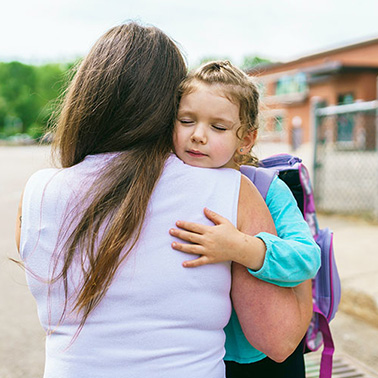
We were going on a residential trip with my school in year 4, my mum had a meeting with my teacher to explain my issues.
The teacher said although they would be able to give me the medicine, she wouldn’t be able to wake me up in the night for the toilet. She asked my mum if I could wear a nappy.
My mum tried to sew a DryNites pull up into my pj bottoms so the other children from school wouldn’t see it […] I ended up not going on the trip because I was so scared of the other children knowing I wet the bed, which was sad.
Missing out on these kinds of events can be heartbreaking for your child. Although in this case the child didn’t feel comfortable going, there are other ways to help your child be discreet with their use of DryNites® Pyjama Pants and take the stress out of school trips or nights away.
Sometimes, other parents just won’t understand
Another time I went for a sleepover at my friend’s house. Her mum said it was time to have my medicine, but that she wasn’t going to give it to me unless I told her what it was for.
She said she had the right to know what medical issue I had.
I was such a good girl, so for me to refuse to tell her felt so rude and awful, I ended up sobbing hysterically and asking to go home. I didn’t go to another sleepover again until years into secondary school.
One of the biggest challenges you may face as a parent is other parents, adults or children just not having the knowledge to help manage your child’s bedwetting.
This isn’t unusual—especially if other people your child is staying with have never had to deal with bedwetting. That’s why it’s so important to be open and talk to other parents, teachers and family members about your child’s bedwetting. With your child’s permission and involvement, of course.
What helped you cope with bedwetting?
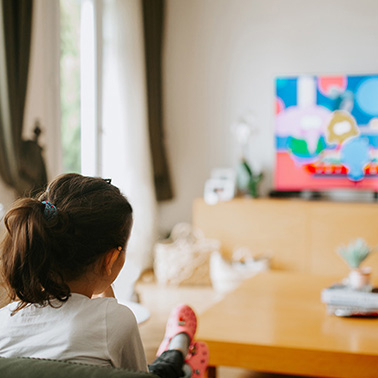
We’d been seeing DryNites advertise on television (it was the 1990’s) and my mum asked if I would be willing to try them.
I had noticed the ads, when they came on, I pretended not to notice but I’m pretty sure I blushed every time because of the secret I had been trying to keep, but had already thought they could help me. So, when mum offered them I agreed and she went and started getting them for me. After that it was a non-issue.
I don’t remember ever discussing it anymore after I started wearing the DryNites and I don’t even remember when I stopped wearing them. It was just a phase I suppose.
Mum was great, she made sure I was okay and had what I needed without making a big deal out of it, and that made it non issue for me.
Sometimes, all your child needs is a little support and a simple solution like DryNites®. But that doesn’t mean Pyjama Pants are for everyone:
My mum was always really good about it. I was only on the top bunk above my sister for about 3 days though—my sister didn’t need the disturbance of someone changing sheets up a ladder in the night!
I had waterproof sheets which back then were very noisy, and I wasn’t drinking after 5pm and she was taking me to the toilet half asleep during the night.
Waterproof sheets and Bed Mats are a great way to help protect your child’s mattress from night-time accidents. They’re an ideal option if your child doesn’t want to wear Pyjama Pants at night.
Good family support helped me cope, had really supportive parents and brothers who were great.
And just having a routine in place to deal with it, so having a good night-time routine and a routine/plan in place for dealing with wet nights.
And a plan for staying away from home. So things like DryNites for sleepovers, it might feel embarrassing, but it can be done and just trying to keep things as normal as possible helps
A consistent bedtime routine can make a big difference to your child’s journey to night-time dryness. It gives them a sense of safety, helps them settle down before sleep, and makes it clear what they should do if they do wet the bed during the night.
Even knowing the way to the bathroom in the dark can really help build their confidence and independence.
What advice and tips would you give to parents and their children who are going through bedwetting?
Share your experiences
Sharing your experiences of bedwetting with your children can do them the world of good. After all, wouldn’t you have felt better about your experiences at the time if you knew you weren’t the only one?
A pot under the bed and a light that can be turned on easily would have helped, as well as less pressure.
It would also have helped to have ruled out UTI and gentle discussion of how to help.
Waterproof sheet under the sheet instead of being shamed. I was afraid of the dark, so dared not get out of bed even when I did wake up in time. Sharing room with a supportive other would also have helped.
Remember that they can't help it
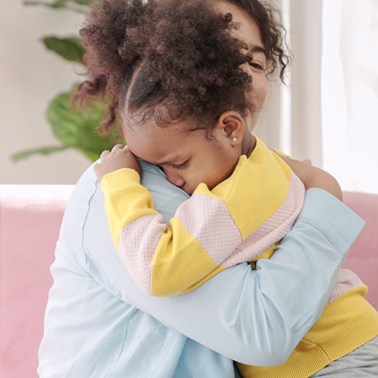
Your child is not being naughty by wetting the bed, nor are they attention-seeking. It’s a natural part of their development, and eventually they will grow out of it.
Talk to a doctor if you’re worried
I think the best thing for parents to do is to make sure first that the kid is okay physically (go to the doctor and get checked out) then just be kind and gentle and ensure that the kid knows it isn’t a problem or anything to worry about.
Worrying about wetting the bed or actively trying not to just makes the problem worse. It will eventually stop, but even if it doesn’t it’s just not that big of a deal.
They make stuff like DryNites for a reason and there’s no reason to be embarrassed about needing them. Kids should know they can wear whatever they want or need to bed, and it won’t make a difference to anyone.
Talking to a doctor isn’t always necessary if your child is under the age of five, but it might help you both worry less. If your child is over five and wetting the bed regularly, then speaking to a doctor is definitely something you should consider.
This isn’t because there’s anything to worry about, but simply because if your child is over the age of five, their accidents are considered a medical condition.
Talk to others about bedwetting
It's really important to talk, talk to parents, siblings etc. Remember you are not the only person.
For such a long time I thought I was alone, but later found out one of my cousins also wet the bed. Keep positive, even when it seems like it's never going to stop.
Whether you’re the child wetting the bed, or the parent helping them manage their bedwetting, it’s easy to feel isolated.
As a parent, talk to your family and friends about bedwetting to find out if any of them went through bedwetting. If they didn’t, instead use it as an opportunity to educate them. You should also talk to your child’s siblings about bedwetting, so they know to support their brother or sister, rather than tease them.
Stay positive!
Even if you have tried everything, stay positive and keep trying because eventually things will get better. There's plenty of times where I thought I was going to just wet the bed all my life, but I got through it and it eventually stopped.
But also, don't let it hold your child back - there are ways they can enjoy everything, it's possible with a bit of planning to have sleepovers and holidays away from home etc. and it not be a big issue.
Sadly, the taboos around bedwetting can make kids feel like they have something to hide. It can stop them going on sleepovers, school trips, or generally just knock their confidence. But that doesn’t need to be the case.
With the right support and solutions in place, kids can go to bed worry-free, and wake up awesome—without worrying about feeling wet and ashamed the next morning. That’s exactly what our Pyjama Pants and Bed Mats were made for.
Simple tips and tricks to support your child through bedwetting
At the end of the day, helping support your child through bedwetting takes patience, kindness, and a few simple dos and don’ts.
Don’t punish them
Avoid punishing your child or letting them see any disappointment you may feel in relation to their bedwetting.
Try not to make them feel bad. They aren’t doing it on purpose or because they’re lazy.
Telling them off for having an accident will only make them feel worse and knock their confidence.
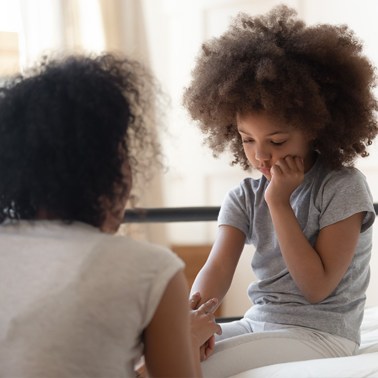
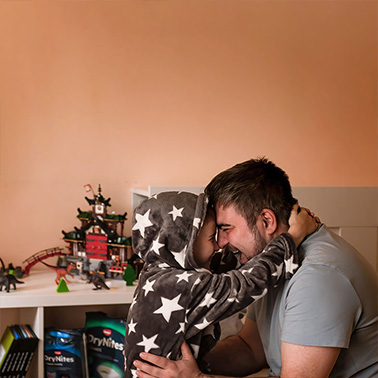
Do be sensitive and considerate
Be sensitive to your child’s feelings when you’re talking to others about their bedwetting.
Discussing it openly and embarrassing them in front of friends and family can have a long-lasting effect on them and it won’t motivate them to get dry.
Don’t compare your child with other children
All children are different and develop at their own rates.
Don't compare children to siblings or peers, as this will only increase stress and lower self-esteem.

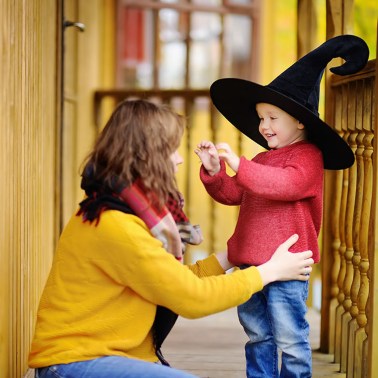
Don’t expect instant results
There’s no magic wand or quick fix for resolving bedwetting so try not to expect instant results.
Sometimes, all a child needs is time and a supportive, patient parent.
Do make sure they feel supported
Try to remember that children look to their parents for their response to the situation and for acceptance regardless of their struggles.
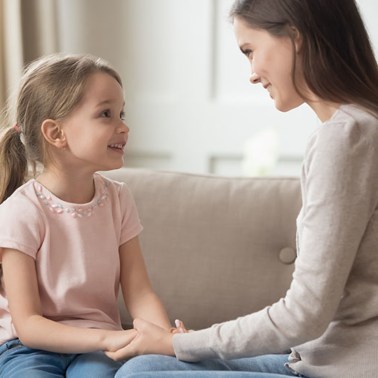
Explore all the tips and advice you'll ever need
We want to help you and your child make wetting the bed a less stressful experience. That starts with sourcing you the right, helpful advice to make sure you both feel confident on your child’s journey to drier nights.
From suggestions of activities to boost your child’s self-esteem to advice on simply how to talk to them about their bedwetting, DryNites® regularly speak to experts to get the real, genuine information you need.
Together, let’s break those bedwetting taboos and help your child take back control of their nights.
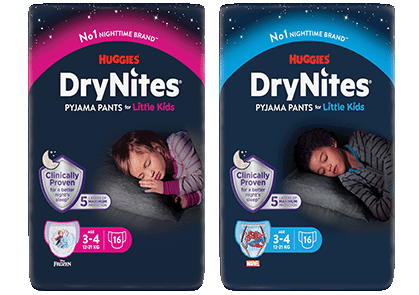



 your parenting partner
your parenting partner